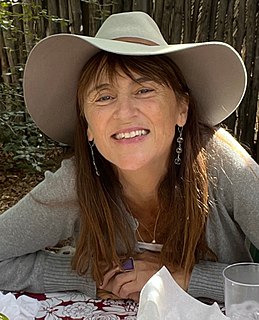A Quote by Nicola Sturgeon
I'm manifestly not the same as Alex Salmond. I'm a different gender, for example... I'm being flippant, but maybe this is a partly gender-driven difference: I'm very keen that we find a way of reaching out across party divides to find things we agree on, as well as the things we disagree on.
Related Quotes
One of the central challenges for global conversation today is to find ways of getting to understand very different views about gender and sexuality. But we should start by recognizing that these issues are subjct to disputation within every society as well as across societies. We need a global conversation that recognizes that we have these very different views. Next, try to agree on fundamental rights: things we think every person is entitled to. Finally, if we're convinced that what a government or a society elsewhere is doing to some people is badly wrong and the conversation gets nowhere.
Gender is not something that one is, it is something one does, an act... a "doing" rather than a "being". There is no gender identity behind the expressions of gender; that identity is performatively constituted by the very "expressions" that are said to be its results. If the immutable character of sex is contested, perhaps this construct called 'sex' is as culturally constructed as gender; indeed, perhaps it was always already gender, with the consequence that the distinction between sex and gender turns out to be no distinction at all.
Embrace a diversity of ideas. Embrace the fact that you can disagree with people and not be disagreeable. Embrace the fact that you can find common ground - if you disagree on nine out of 10 things, but can find common ground on that 10th, maybe you can make progress. If you can find common ground, you can accomplish great things.
Historically different groups find different things in each comics, as with *X-Men*. Gay readers find parallels to living a closeted lifestyle or choosing to come out and be openly gay. Black readers find a relevance to their lives growing up in America as a black guy. Picked-on brainy kids find a metaphor for being an outsider. It's a simple enough, and direct enough metaphor that it has different shades for different people. And so each reader to some degree gets out of it what they bring to it. That's one of the things I think that makes *X-Men* such a strong property.
I totally rule out any arrangements with the SNP — in the same way I rule out any arrangements with Ukip - because there is no meeting point for me with one party that basically wants to pull our country to bits and another party that wants us to pull out of the EU. I would never recommend to the Liberal Democrats that we help establish a government which is basically on a life support system, where Alex Salmond could pull the plug any time he wants.
We notice in others only those things that relate to ourselves. For example, you could find someone hilarious and brilliant, and I could find the same person idiotic and annoying. It's the same person doing the same thing, but because we are viewing them from our own unique perspectives, they mirror back to us something different.
There may be countries [where] there's no gender inequality in schooling, even in higher education, but [where there is] gender inequality in high business. Japan is a very good example of that. You might find cases in the United States where at one level women's equality has progressed tremendously. You don't have the kind of problem of higher women's mortality as you see in South Asia, North Africa, and East Asia, China, too, and yet for American women there are some fields in which equality hasn't yet come.
I think the way we look upon gender is that we're realizing that we're not that different, which is a good thing. The United States needs to come further with that. In the Scandinavian countries, we've come further when it comes to gender politics and how we look upon gender and how women are treated in general.
Sometimes people go off in a slightly different direction of wanting to be different, of wanting to be special, of wanting to be more, and I think that those people are often - not always, but often - genuinely different in some way. Perhaps their gender orientation is not acceptable or popular, not the norm. Or, their physical design is literally, in some way, setting them apart. Or, in many cases, they feel the burden of their ordinariness so dreadfully that they strive to find some way of being unique. I think that can be a very positive thing, but it also can be negative, destructive.































